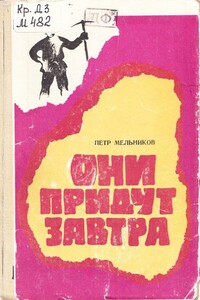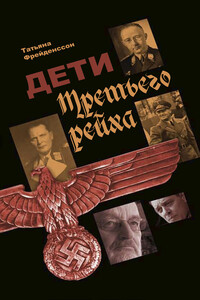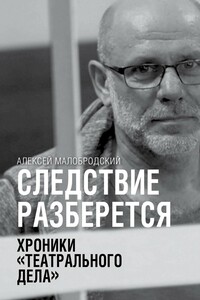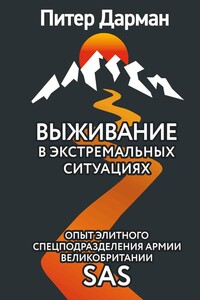The Boy Scouts In Russia - [2]
"I'm not afraid of you," said Fred. He was angry, but his voice was steady nevertheless. "You've cheated me. You've had my passport and my money taken from me. What do you think I can do, when you land me in a strange country in the middle of the night, without a kopeck in my pocket? But I'll find a way to get back at you. Any man who would treat me the way you have done is sure to have treated some other people badly, too. And I'll find them-perhaps they'll be stronger than I."
"Your papers were confiscated in due process," said the Russian. He smiled very evilly. "As for your threats-pah! Do you think your word would carry any weight against that of Mikail Suvaroff, a prince of Russia, a friend of the Grand Duke Nicholas and General of the army?"
"Oh, you're a great man," said Fred. "I know that. But you're not so great that you don't have to keep straight. You may think I had no business to come to Russia. Perhaps you are right, but that's no reason for you to treat me like this. After all, you're my uncle-"
"Silence!" said Suvaroff harshly, startled at the carrying power of the boy's voice.
Fred stepped nimbly across the line.
"You can't touch me now, by your own word!" he taunted. "I'm in Germany, and your authority stops at the border! I say, I could forget everything except the way you've put me down here in the middle of the night, without a cent to my name or a friend I can call on! You needn't have done that. I don't suppose you took my money-you don't need it-but you let your underlings take it."
"I do not know that you ever had the money you say was taken from you," said Suvaroff, controlling himself. "It is easy for you to make such a charge. But the officers who arrested you deny that they found any money in your possession. There is no reason to take your word against them."
Fred stared at him curiously for a moment.
"Gee! You do hate us-and me!" he said, slowly. "I think you really believe all you've said about me! Well, I'm glad if that's so. It gives you a sort of excuse for behaving the way you have to me. And I'd certainly hate to think that any relative of mine could act like you unless he thought he was in the right, anyhow!"
Suvaroff strangled with anger for a moment. His cruel eyes became narrow.
"I have changed my mind!" he cried, suddenly. "Seize him! Bring him back!"
Fred stood perfectly still as two or three policemen and a couple of soldiers in the white uniform coats of Russia came toward him. He knew that it would be useless either to run or to fight. But, as it turned out, there was no need for him to do either, for from behind him a sharp order was snapped out by a young man who had been listening with interest. Quietly a file of German soldiers with spiked helmets stepped forward.
"Your pardon, excellency," said the German officer. "It is, of course, quite impossible for us to permit Russian officials or soldiers to make an arrest on our side of the line!"
"A matter of courtesy-" began Suvaroff.
"Pardon again," said the German, very softly. "Just at this moment courtesy must be suspended. With a general mobilization in effect upon both sides-"
Suvaroff suppressed the angry exclamation that was on his lips. For a moment, however, he seemed about to repeat his order, though his men had halted at the sight of German bayonets.
"I should regret a disturbance," said the German, still speaking in his quiet voice. "My orders are to permit my men to do nothing that might bring on a clash, for just now the firing of a single shot would make war certain. Yet there is nothing in my orders to forbid me to resist an act of aggression by Russia. We are prepared for war, though we do not seek it."
Fred, almost losing interest in his own pressing troubles at this sudden revelation of a state of affairs of which he had known nothing whatever, looked fixedly at Suvaroff. He saw the Russian bite his lips, hesitate, and finally take off his hat and make a sweeping bow to the German officer.
"I agree, mein herr Lieutenant," he said, mockingly. "The time has come, I think. It may be that the fortunes of war will bring us together. Meanwhile I wish you joy of him you have saved!"
The German did not answer. He watched the departing Russians and then, smiling faintly, he turned to Fred.
"I'll have to ask you to give some account of yourself, if you please," he said, in excellent English. "I'm Lieutenant Ernst, of the Prussian army. Sentenced to guard duty here-for my sins. Now will you tell me what all this means?"
"I had a passport," said Fred directly, and meeting the German's eyes frankly. "Prince Suvaroff is my uncle, my mother's brother. Her family refused to recognize my mother after her marriage to my father, and so Prince Suvaroff does not like me. I had to see him on business and family matters. I was arrested. My passport and my money were taken away from me-and you saw what happened. He took me off the train and put me across the border."
Ernst nodded.
"Things are done so in Russia-sometimes," he said. "Not always, but they are possible, for a great noble. Well, I have seen things nearly as bad in my own Prussia! I shall have to see what may be done for you. If you reach Berlin, your ambassador will be able to help you, yes?"

В книге рассказывается история главного героя, который сталкивается с различными проблемами и препятствиями на протяжении всего своего путешествия. По пути он встречает множество второстепенных персонажей, которые играют важные роли в истории. Благодаря опыту главного героя книга исследует такие темы, как любовь, потеря, надежда и стойкость. По мере того, как главный герой преодолевает свои трудности, он усваивает ценные уроки жизни и растет как личность.

Это суровое документальное повествование не предназначено для легкого чтения. В нем любознательный читатель найдет для себя немало поучительного, узнает о том, как бывшие красногвардейцы, партизаны и чекисты, во главе с коммунистом В. П. Бертиным, при активном содействии обкома партии и правительства молодой Якутской республики, еще при жизни В. И. Ленина, открывали и осваивали золотоносные месторождения на Алдане, и как самые закаленные и упорные из них в составе первой Верхнеколымской геологоразведочной экспедиции высадились на берег Охотского моря и открыли золотую Колыму. Читатель узнает также о том, как старатели и якуты-проводники помогли Ю. А. Билибину, С. Д. Раковскому и П. М. Шумилову найти в жизни более верную дорогу, чем у их отцов, и стать патриотами своей социалистической Родины, лауреатами Государственной премии. Эта книга — о повседневном будничном героизме советских геологов и золотоискателей.

Герои этой книги – потомки нацистских преступников. За три года журналист Татьяна Фрейденссон исколесила почти полмира – Германия, Швейцария, Дания, США, Южная Америка. Их надо было не только найти, их надо было уговорить рассказать о своих печально известных предках, собственной жизни и тяжком грузе наследия – грузе, с которым, многие из них не могут примириться и по сей день. В этой книге – не просто удивительные откровения родственников Геринга, Гиммлера, Шпеера, Хёсса, Роммеля и других – в домашних интерьерах и без цензуры.

В книге рассказывается история главного героя, который сталкивается с различными проблемами и препятствиями на протяжении всего своего путешествия. По пути он встречает множество второстепенных персонажей, которые играют важные роли в истории. Благодаря опыту главного героя книга исследует такие темы, как любовь, потеря, надежда и стойкость. По мере того, как главный герой преодолевает свои трудности, он усваивает ценные уроки жизни и растет как личность.

Автор, один из фигурантов громкого «театрального дела» режиссёра Кирилла Серебренникова, рассказывает историю своего «сопротивления». Книга эта – одновременно и триллер, и крутой детектив, и готический роман ужасов, это и жесткий памфлет, и автобиография. Но как бы ни определить её жанр, это повествование о стойкости, верности убеждениям и своему делу.

«Чтобы выжить, вам необходимо овладеть искусством выживания, особенно психологическим его аспектом, поскольку от этого в конечном счете и зависит, останетесь вы в живых или погибнете», — говорит Питер Дарман. В его книге «Выживание в экстремальных ситуациях» собран опыт элитных подразделений, таких как SAS и «Морские котики» США. В основе выживания лежат самые простые вещи: правильное использование одежды, инструментов, подсобных предметов и, главное, ваша психологическая готовность. Автор рассказывает о том, как выжить в различных нештатных ситуациях: в пустыне, тайге, джунглях, на Крайнем Севере.